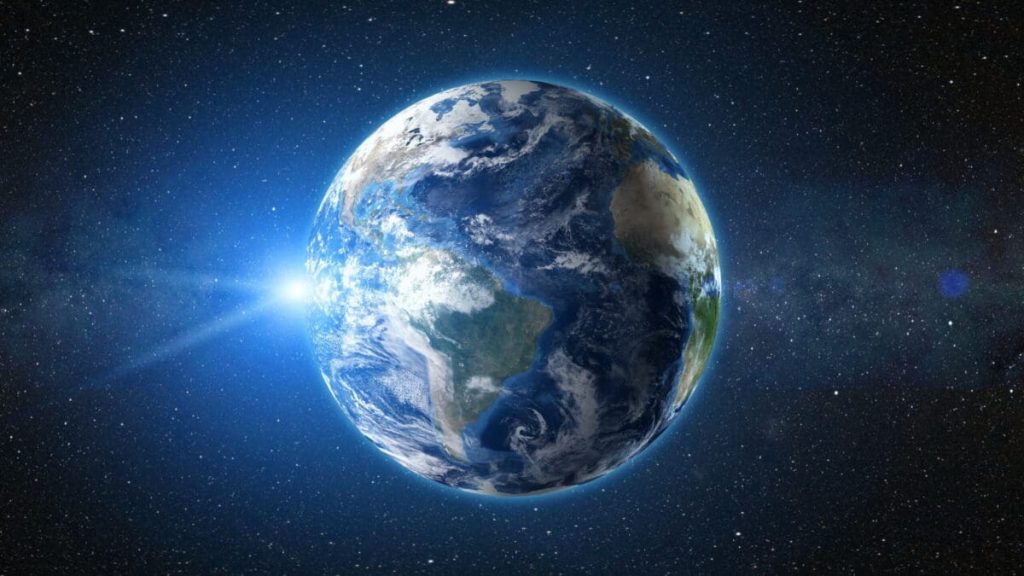
Humans: The Architects of Environmental Change
A quarter into the 21st century, the fraught relationship between humans and the environment remains a focal point of contention and debate. While our actions have undeniably reshaped the planet, discussions about sustainability, responsibility, and the future of ecological balance can stall if we fail to find common ground on first principles.
This persistent debate serves as an impediment to any meaningful environmental action. To move forward, we must revisit the narratives that shape our perceptions and recognize the critical need for a reframed understanding of our role as stewards of the Earth.
The Human-Centric Dilemma in Environmental Ethics
The traditional environmental discourse sticks on a persistent tension: the prioritization of immediate human needs over environmental action. This human-centric dilemma features in arguments that favor economic growth, resource extraction, and technological development at the expense of ecological integrity.
Proponents of this viewpoint contend that any economic development is paramount, positioning environmental laws and regulations as impediments to progress, while minimizing the human impact on the environment. Such arguments frequently portray environmentalists as extremists, elites and obstructionists, suggesting that their advocacy for nature disrupts essential human activities.
This tired framing not only diminishes the legitimacy of environmental action but also perpetuates the false choice between human welfare and ecological health. It overlooks the reality that a thriving environment is foundational to both human welfare and a sustainable economy.
Healthy ecosystems provide clean air, water, and fertile land—essential components for survival and for economic productivity. By discounting the concerns of environmental ethics, ignoring the human impact on the environment, and dismissing environmental protection as an afterthought or luxury, we risk perpetuating policies that prioritize short-term human interests over long-term planetary (and economic) health.
The Fallacy of Inconvenience
A critique of environmental efforts is that taking action to address environmental problems is burdensome for individuals and societies. This perception drives resistance to changes such as reducing carbon footprints, embracing renewable energy, or altering consumption habits. Critics argue that these actions inconvenience daily life, disrupt economic activities, and impose intolerable costs on businesses and households.
This argument, however, discounts our limitless capacity for adaptability. Throughout history, humanity has demonstrated remarkable resilience in the face of change. The transition to sustainable practices, for instance, can foster innovation, create jobs in emerging industries, and lead to improved quality of life.
Moreover, many sustainable practices, such as local food sourcing and energy efficiency, can reduce costs and enhance community well-being. By emphasizing inconvenience, we risk ignoring the potential for positive transformation and the benefits of a sustainable future.
Humans as the Primary Agents of Environmental Action
Despite the challenges we face, humans possess an unparalleled capacity for adaptation and innovation. Our ability to invent and implement solutions through the market economy is crucial in addressing environmental degradation and the human impact on the environment.
Technology has the power to revolutionize how we interact with our surroundings, offering tools that can mitigate our impact on the planet and reframe environmental issues. Renewable energy technologies, advanced agricultural practices, and waste reduction initiatives illustrate how human ingenuity can conserve natural resources and foster a more sustainable relationship with the environment.
Together with market solutions, government policy also plays a significant role in environmental action. Both the federal and state governments can incentivize sustainable practices through regulations, subsidies, and education. Effective environmental policies not only promote ecological health but also drive economic growth by creating green jobs and fostering innovation.
By recognizing our potential as agents of change, we can cultivate an environmental ethics mindset that prioritizes environmental stewardship and fosters collaborative solutions to pressing ecological challenges.
Reframing the Narrative: The Human Impact on the Environment
To move forward effectively, we must shift the narrative surrounding human impact on the environment. Instead of viewing environmental protection as an obstacle to human progress, we should recognize that our care of the Earth redounds to our direct benefit. This reframing emphasizes that caring for the natural environment is not merely an act of altruism but a necessary investment in our own future.
The benefits of environmental stewardship extend beyond ecological preservation. Sustainable practices can enhance public health, improve economic stability, and foster social equity. For example, urban green spaces not only contribute to biodiversity but also promote physical and mental well-being among city dwellers. Recognizing these interconnected benefits can inspire individuals, communities, and policymakers to prioritize environmental initiatives that serve both human and ecological interests.
The Interconnectedness of Humans and the Environment
A comprehensive understanding of our relationship with the environment must include the concept of ecosystem services—the benefits that humans derive from healthy ecosystems. These services encompass a wide range of functions, including pollination of crops, purification of water, climate regulation, and disease control.
Our dependence on nature is profound, yet often taken for granted. The World Economic Forum estimates the value of these “free” ecosystem services to be $44 trillion annually – more than half of the world’s GDP (gross domestic product).
Neglecting environmental health can lead to dire long-term consequences, including biodiversity loss, diminished natural resources, and increased vulnerability to climate change. As ecosystems degrade, the services they provide become compromised, directly affecting human well-being. For instance, deforestation not only contributes to climate change but also disrupts water cycles and threatens food security. The loss of biodiversity diminishes the resilience of ecosystems, making them less capable of withstanding environmental stressors.
These interconnected realities require that we foster a deeper understanding of our role within the ecological framework. Embracing the notion that our survival is intricately linked to the health of the planet is the first step in any collective action towards sustainable practices and policies.
Conclusion
The relationship between humans and the environment is complex and multifaceted. While the human-centric dilemma in environmental ethics often prioritizes short-term needs, a deeper examination reveals the essential interconnectedness of our existence and the ecosystems that sustain us. By reframing the narrative to emphasize responsibility, adaptability, and the inherent benefits of environmental stewardship, we can cultivate a more sustainable future.
It is crucial to recognize our role as architects of environmental change. Through innovation, policy, and a commitment to sustainability, we have the power to shape a world where human prosperity and ecological health coexist harmoniously. It is long past time to embrace this responsibility and work collectively to change the trajectory of our planet.
Explore a Bachelor of Science in Environmental Studies and gain the skills to address today’s critical environmental challenges. Dive into sustainable solutions, learn how human actions shape our ecosystems, and start your journey towards a career with impact. Request more information about our environmental degree programs today.
This blog was written by Zachary Falcon with the assistance of AI language model ChatGPT (OpenAI, 2024).



